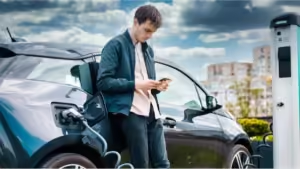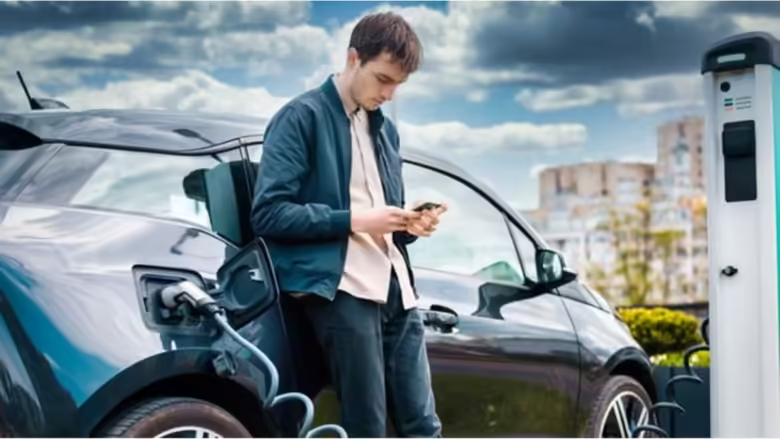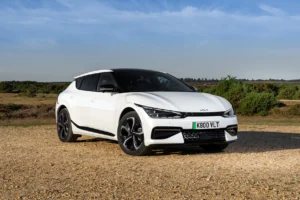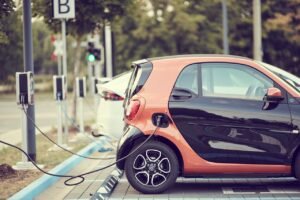As electric cars become more popular, drivers are considering how to preserve their investment. Advanced technology, environmental benefits, and fuel savings make electric cars (EVs) appealing. Drivers insuring electric cars must take into account different factors than gasoline-powered automobiles. This post will thoroughly compare electric car insurance packages and help you choose.

Differences between electric and traditional car insurance
Electric vehicles have changed how insurance firms calculate risk and rates. Insuring an automobile protects the driver, passengers, and vehicle, but electric cars have unique considerations that affect premiums. Electric car insurance differs from standard auto insurance because electric cars cost more. High-end EVs like Teslas have complicated components like lithium-ion batteries and electric motors, making repairs and replacements more expensive. Insurers must factor in higher repair and replacement expenses when setting premiums.
EV drivers regularly use charging stations, which affects their insurance. Some policies cover home charging equipment damage or EV-specific roadside assistance, distinguishing it from standard auto insurance.
Cost factors for electric car insurance
Electric car insurance costs depend on several factors. One important element is automobile expense. Due to their greater repair and replacement costs, luxury electric automobiles have higher insurance premiums. Electric car repair costs are also driven by battery costs. EV batteries are one of the most expensive parts, and changing them after an accident can be costly.
Safety elements also affect electric car insurance prices. Electric vehicles often have ADAS capabilities including automated emergency braking, lane departure warnings, and collision avoidance. These devices lower accident risk, thus some insurers may provide discounts to drivers of automobiles with them.
Additionally, insurers consider the driver’s profile while setting premiums. As with traditional cars, age, driving history, and location affect electric vehicle insurance costs. EV drivers may benefit from the notion that they are more environmentally conscientious and responsible on the road, which could cut their premiums.
Electric Car Coverage Types
Understanding coverage kinds is crucial when evaluating electric car insurance. Like standard automobile insurance, electric car insurance offers multiple coverage options to protect you, your passengers, and your vehicle.
Most states require liability car insurance, the most basic type. It covers driving-related injuries and property damage. Electric car owners get the same liability coverage as gasoline-powered car owners. However, depending on the value of your electric car, you may desire higher liability limits for accident protection.
Electric car insurance must include comprehensive and collision coverage. Comprehensive coverage covers theft, vandalism, and natural disasters, while collision coverage fixes automotive damage from accidents. Comprehensive and collision insurance are crucial for EV owners due to the increased cost of repairs and replacement. Some insurers offer electric vehicle-specific plans that cover charging station and electric component damage.
Uninsured/underinsured motorist coverage is another option. If you hit a driver without enough insurance, this insurance covers you. Due to the expensive cost of electric vehicles, this coverage might provide piece of mind if the at-fault driver’s insurance fails.
Electric Car Owner Green Discounts and Benefits
Insurance companies may provide discounts to electric car owners. Electric and hybrid drivers receive “green” discounts from several insurers. Driving an eco-friendly vehicle and decreasing your carbon footprint usually earns you these benefits. Some insurers provide pay-per-mile or usage-based insurance schemes for electric vehicle owners, especially those who drive less or commute short distances.
Electric car owners also benefit from EV-specific coverage. Some insurance cover home charging equipment damage or provide access to electric vehicle repair shops. Electric car insurance costs are higher, but these benefits can assist.
Compare Insurers’ Policies
For electric car insurance quotes, research around and get estimates from multiple insurers. Insurance companies analyze risk and set prices differently, and some may have more expertise insuring electric vehicles. Ask about electric car discounts and EV-specific coverage when getting bids.
In addition to prices, insurers’ customer service and claims management must be considered. Electric vehicles require specialized repair, so find an insurance company with experience and a network of repair shops that can meet your vehicle’s needs. You can evaluate each insurer’s customer satisfaction by reading J.D. Power or Consumer Reports reviews and ratings.
Which electric car insurance is best?
Your demands and circumstances will determine the finest electric car insurance policy. A Tesla or Porsche Taycan owner will seek an insurance with high liability limits and comprehensive coverage to protect their investment. However, if you drive a cheaper electric car like a Nissan Leaf or Chevrolet Bolt, you may find a cheaper policy with enough coverage.
Consider coverage options and advantages from each insurer in addition to insurance pricing. Electric car providers may offer charging station protection or battery replacement, as well as green discounts or usage-based insurance plans to lower costs. Compare quotes from several insurers and evaluate coverage options to discover the electric car insurance policy that best matches your needs and protects you on the road.
In conclusion, picking the best electric car insurance policy takes careful evaluation of vehicle cost, coverage types, and insurer discounts or advantages. Understand electric vehicle hazards and costs to make an informed decision and locate the best coverage for you and your car.



